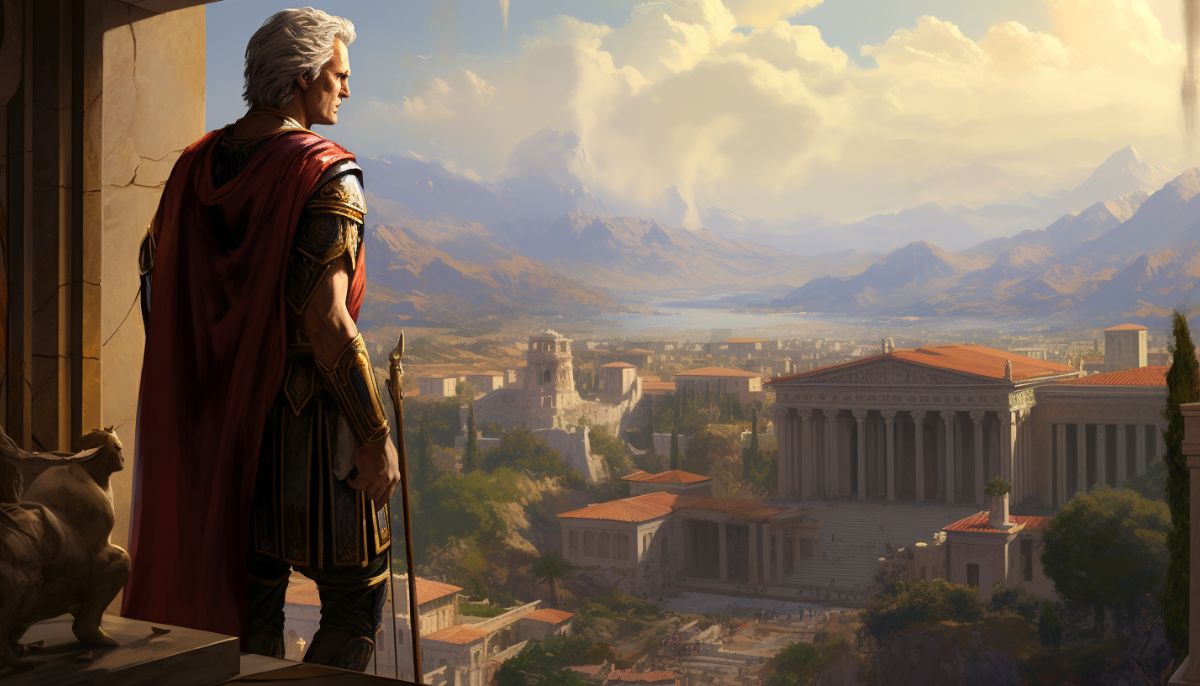Alexander the Great, synonymous with military genius and far-reaching influence, had a life tragically cut short. He ruled for a little over a decade but managed to transform the ancient world.
So, let’s delve into an intriguing hypothetical: What if Alexander the Great lived longer? What if his life wasn’t abbreviated by sudden illness or whatever mysterious circumstance led to his demise?
We will examine how additional years could have led to even more military conquests, stable governance, and a greater legacy.
Consider this your invitation to an intellectual adventure, as we venture into the uncharted territories of one of history’s most compelling “what if Alexander the Great didn’t die young” scenarios. Hold on tight, it will be a fascinating ride through alternative history!
The death of Alexander the Great
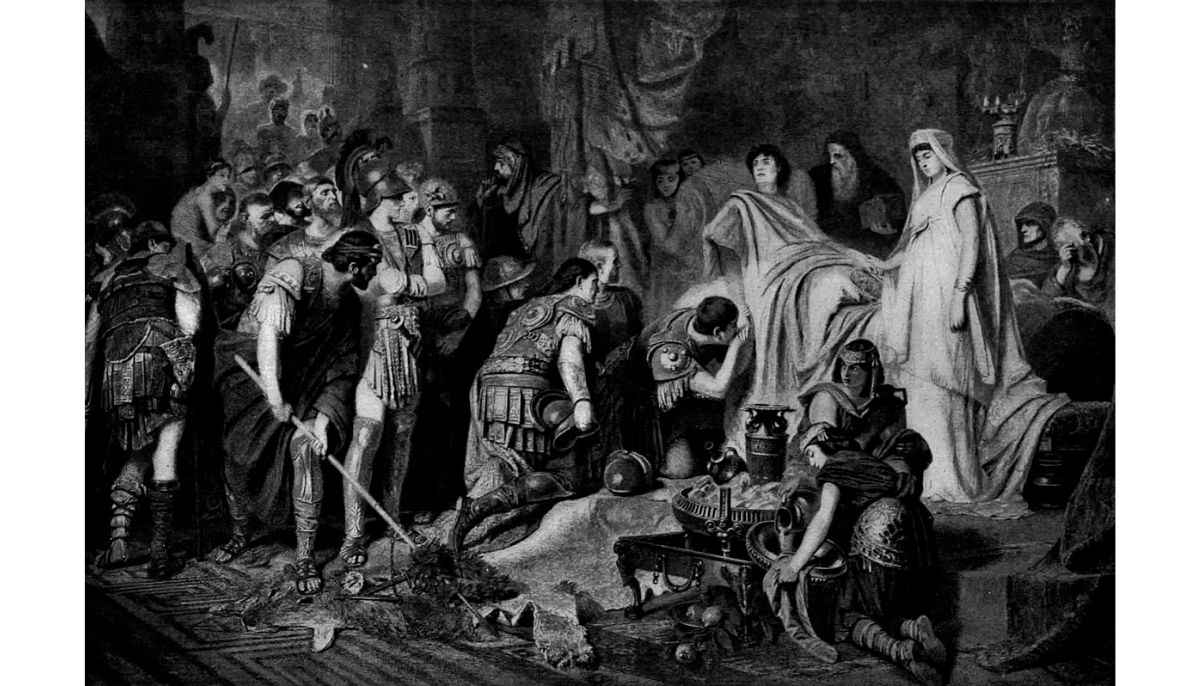
In 323 BCE, at a mere 32, Alexander the Great met his untimely end in Babylon, sending shockwaves through his empire, generals, and soldiers. The precise culprit of his demise remains a historical guessing game, with theories spanning from foul play to illness.
Legend has it that Alexander fell victim to a relentless fever after a raucous night of revelry. Despite the desperate ministrations of his physicians, his state deteriorated, leading him into a fateful coma. For a dozen agonizing days, the world held its breath until he breathed his last on June 10, 323 BCE.
Want to know more about the life of Alexander the Great? Check these articles out:
- Alexander the Great in Egypt
- The Story of Alexander and the Gordian Knot
- Alexander the Great’s fascination with Zeus-Ammon
- Who were Alexander the Great’s lovers?
- Where is Alexander the Great buried?
- The wild conspiracy theory that Alexander is buried in St. Marks explained
Alexander’s Empire at the time of his death
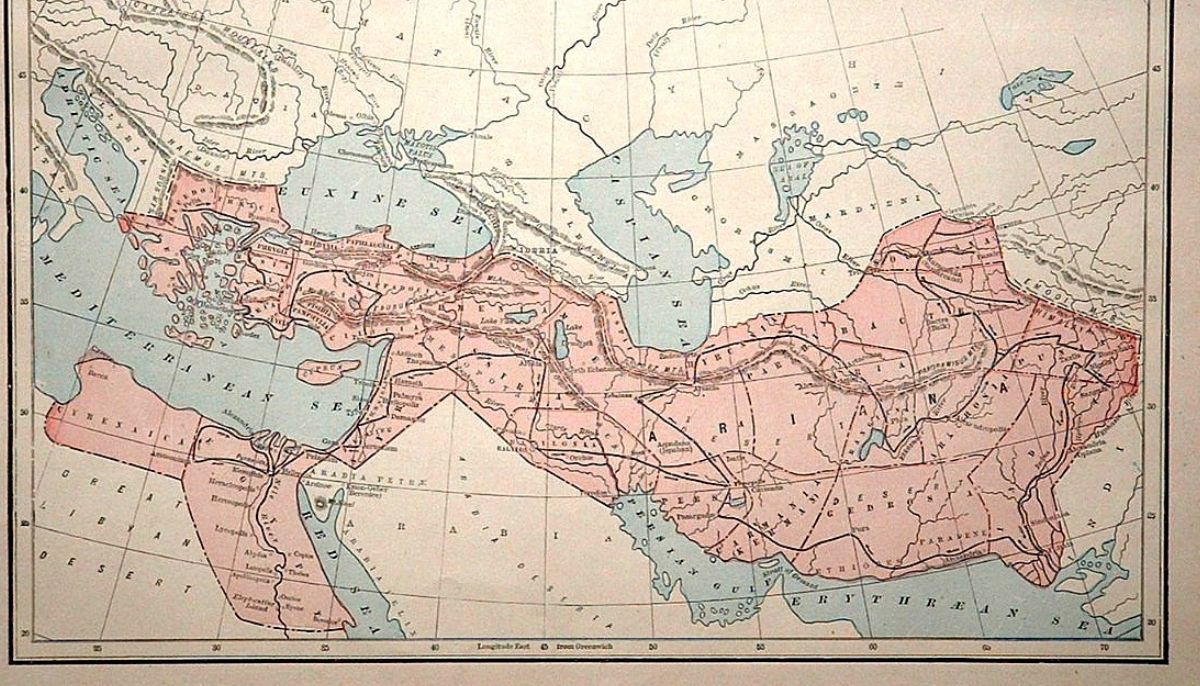
At the time of Alexander’s passing, his empire stretched from Greece to India, a formidable force divided into provinces governed by appointed satraps. Roads crisscrossed the land, fostering trade and communication.
With an army of 50,000, Alexander’s might was unmatched. While fiercely devoted, it comprised soldiers from diverse backgrounds, sowing seeds of tension.
Cultural assimilation was the cornerstone of his rule, as Greek influence permeated the empire through newly founded cities, bearing Alexander’s name.
Agriculture, trade, and conquest fueled the economy, with abundant resources like gold and silver extracted from mines.
Yet, beneath the opulence lay unrest. Diverse populations and emerging tensions marked the empire. Succession loomed uncertain, igniting a power struggle among generals and families.
But what if he lived? Where would the world’s greatest conqueror have turned next?
1. Conquests of Rome and Carthage
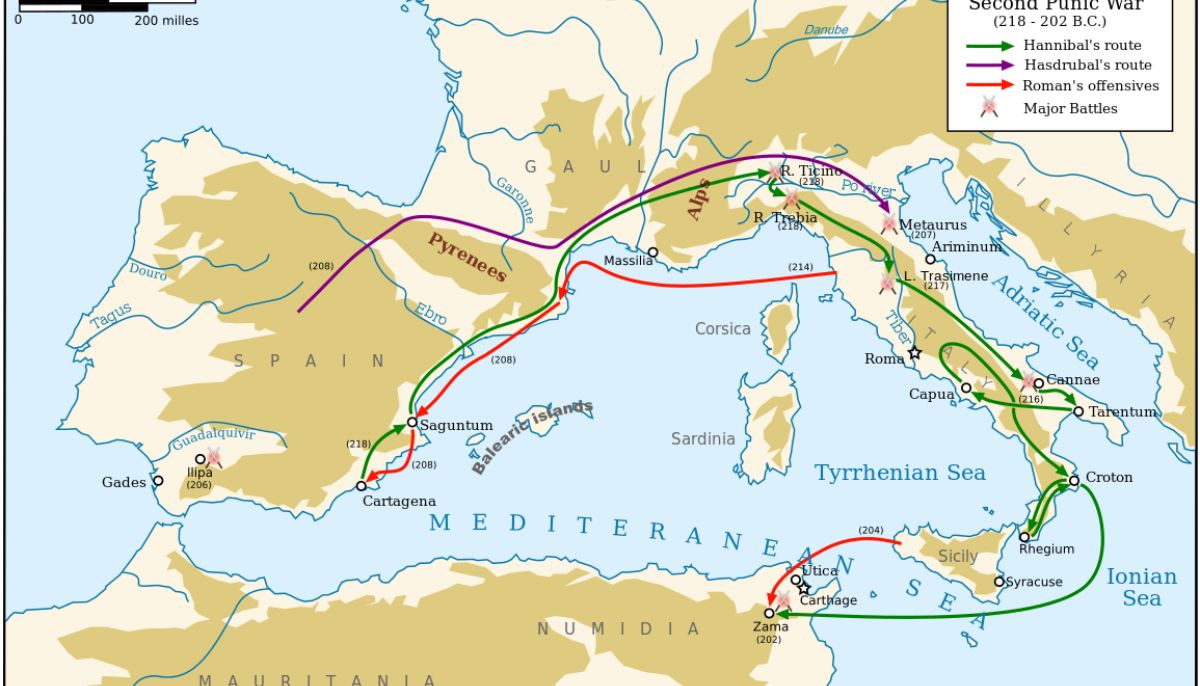
Had Alexander’s life extended, further conquests might have been on the horizon. Speculations point westward, envisioning invasions of Rome and Carthage.
Rome, nestled in the Italian peninsula, and Carthage, across the Mediterranean in North Africa, stood as formidable states. Alexander had reportedly eyed them for conquest.
Carthage, in particular, boasted a potent navy and thrived on trade. Their military might shone in the Punic Wars against Rome.
Had Alexander’s days been prolonged, the clash with Carthage might have echoed the grandeur of later Rome versus Hannibal showdowns.
With their mighty navy and thriving trade, the Carthaginians were no easy adversaries. Yet, Alexander’s unparalleled military prowess asks whether he could have triumphed.
Ptolemy’s posthumous attempt, though unsuccessful, only hints at the formidable challenge. With Alexander’s formidable track record, victory is a tantalizing possibility.
2. Conquests of India and China
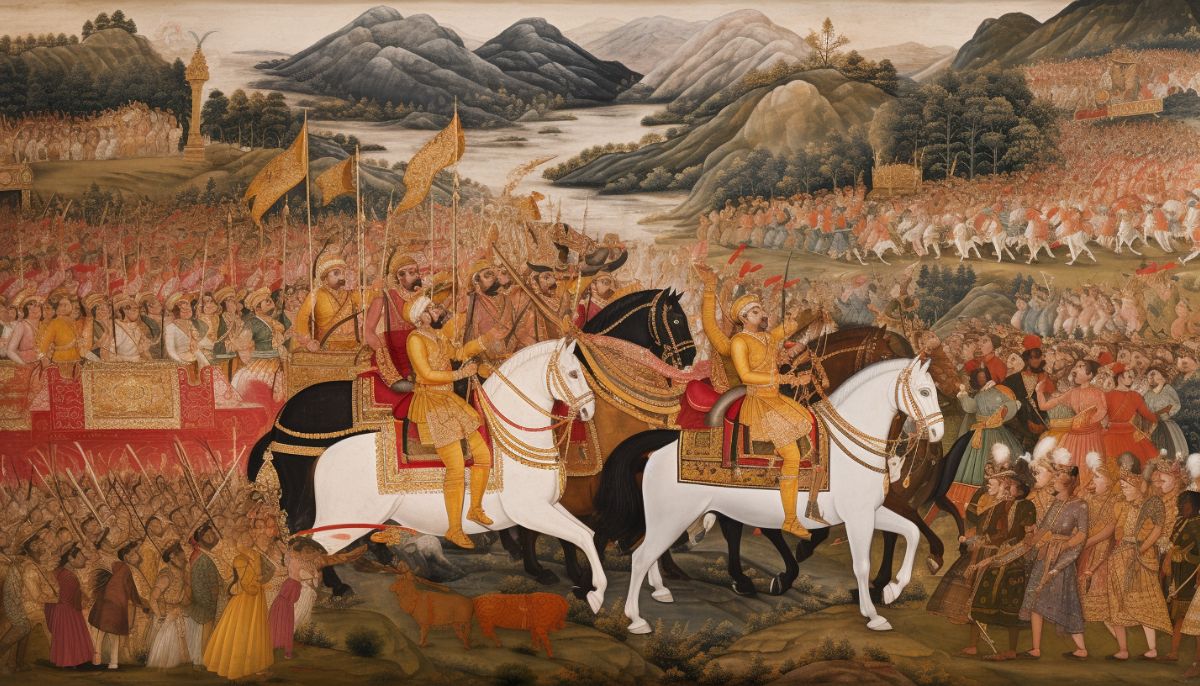
The East would have witnessed his insatiable quest for dominion if Alexander’s reign had endured. With its allure of opulence and strategic significance, India would have undoubtedly been a focal point. His earlier skirmish with King Porus only hinted at the potential grandeur of a renewed campaign.
Venturing even further, the towering Himalayas might have beckoned Alexander’s ambition, with Tibet in his sights. Yet, China loomed as the ultimate prize, a fortress of ancient civilization and military might.
While his audacity was boundless, China’s civilization’s vast expanse and formidable prowess would likely have thwarted even Alexander.
The very notion, however, ignites the imagination. Conquering China would have enshrined him in legend, a feat of unparalleled proportions. Yet, the logistical implausibility of bridging the immense distance rendered this ambition, however grand, a fanciful dream.
3. Alexander could have founded an empire like Augustus

Had Alexander the Great’s life not been cut short, the annals of history might have recorded an era of unparalleled stability and tranquility across his expansive realm. At his demise, he held dominion from the cradle of Greece to the enigmatic reaches of India.
The seeds of Hellenization, the propagation of Greek ideals, were already sown, promising a cultural tapestry woven with threads of philosophy, literature, and art.
With a lifespan akin to Rome’s august emperor, Augustus, Alexander could have firmly rooted his reign and these Hellenic values, heralding an epoch of enduring peace and opulence.
His charismatic sway and indomitable leadership had rallied legions to his cause, forging bonds of unswerving loyalty. Extended years might have seen the establishment of a robust bureaucracy, ensuring seamless succession and effective governance.
In pursuit of a unified empire bound by a shared cultural ethos, Alexander had erected cities in the Grecian mold, fostering the embrace of the Greek tongue and tradition. A longer reign would have furthered this harmonization, laying the foundation for a protracted era of prosperity akin to Augustan Rome.
In essence, Alexander’s hypothetical prolonged reign could have mirrored Augustus’ impact on Rome, affording his realm an age of strength and stability that would resonate through the ages.
4. Successful reign of Alexander IV of Macedon
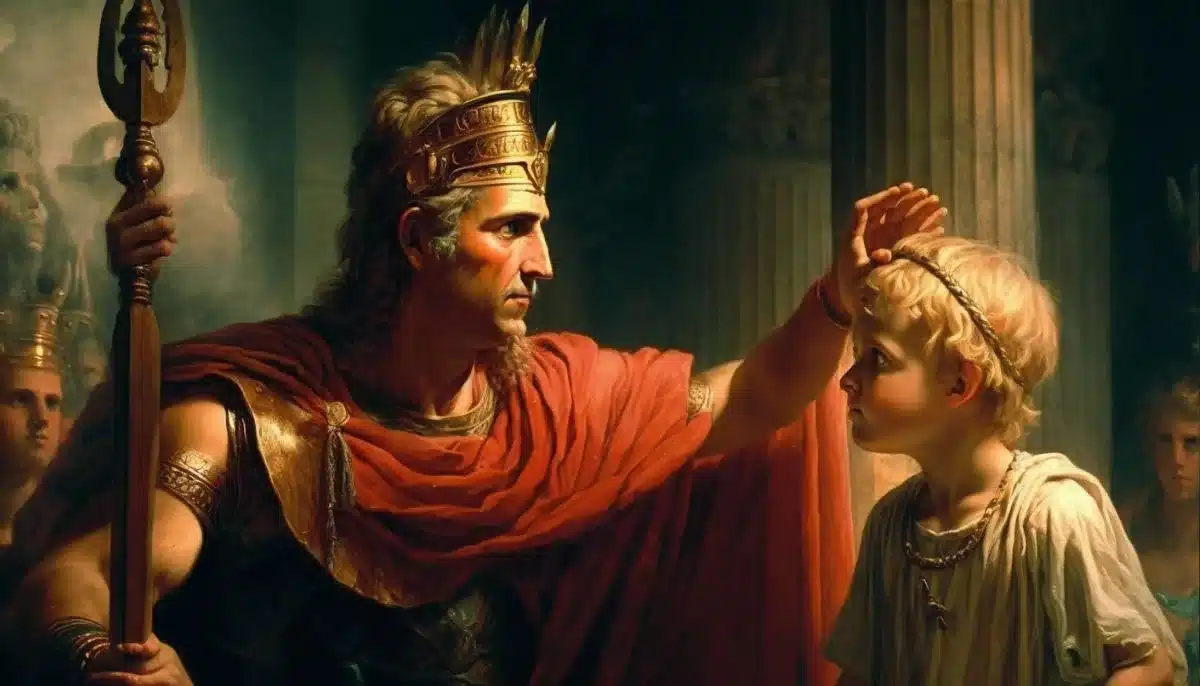
Had Alexander the Great been granted more years, a meticulously devised succession plan might have awaited his son, the yet unborn Alexander IV of Macedon, the fruit of Roxana of Bactria.
A notable shortcoming of Alexander’s legacy was the absence of a definitive succession strategy, paving the way for the tumultuous Wars of the Diadochi, a struggle among his generals for dominion over distinct swathes of the empire. This internal strife and instability culminated in the empire’s fracturing, birthing disparate successor states.
Yet, had Alexander’s days been prolonged, the succession path for his son, Alexander IV, might have been unequivocal. This foresight could have averted the power struggles that marred the aftermath of his passing, fostering unity under his son’s reign.
In all likelihood, Alexander would have taken measures to guarantee his son’s proper tutelage and preparation for governance. This could have entailed appointing trusted mentors to oversee his upbringing and education and exposing him to the rich tapestry of Greek culture and values.
Alas, Alexander IV’s days were cut short. At the tender age of 14, he met an untimely demise during the protracted Wars of the Diadochi, which raged on for decades in the wake of Alexander’s departure.
However, had Alexander’s days been extended, a more auspicious reign might have awaited his son, potentially culminating in the empire’s unification under his steady hand.
5. No wars of the Diadochi
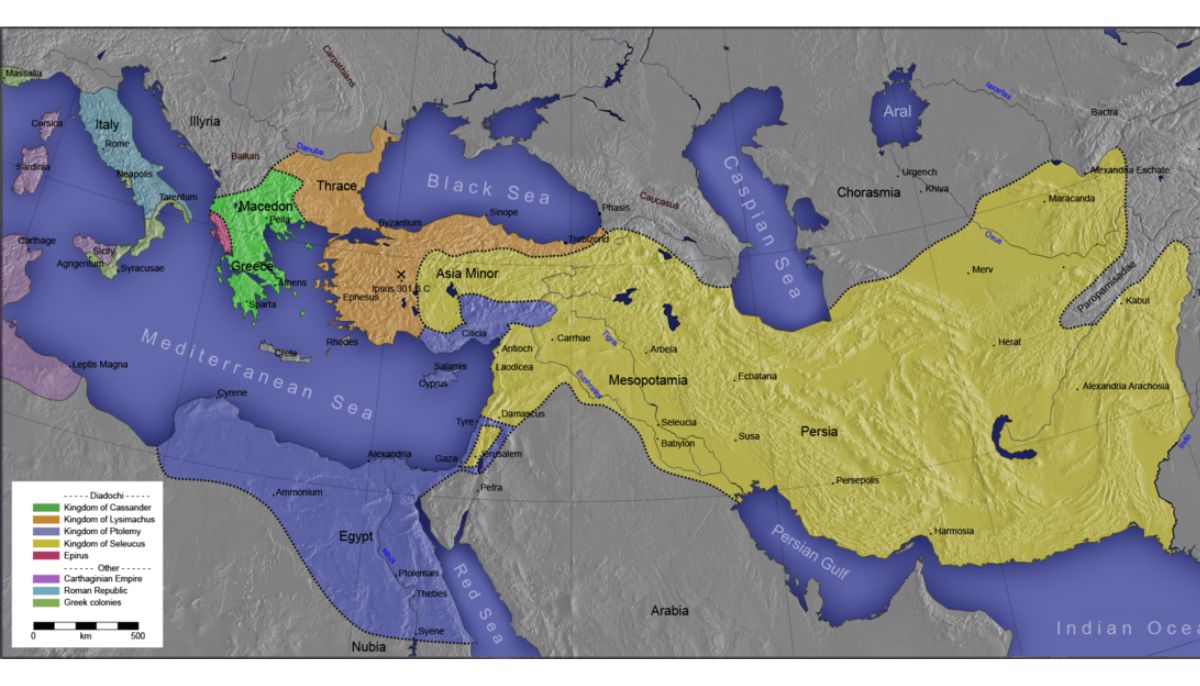
The early demise of Alexander the Great bore a weighty consequence: the blood-soaked Wars of the Diadochi, a tumultuous chapter that rent his empire asunder.
Had Alexander’s days stretched longer, he might have forestalled the power struggles that marred the aftermath of his passing. It’s conceivable he would have entrusted seasoned counselors to guide the transition of power, or taken measures to cultivate unwavering loyalty among his generals towards his heir.
The potential absence of power struggles and discord among Alexander’s generals could have averted the Wars of the Diadochi entirely. This scenario would have spared innumerable lives and safeguarded the unity of Alexander’s realm.
6. No Roman Empire
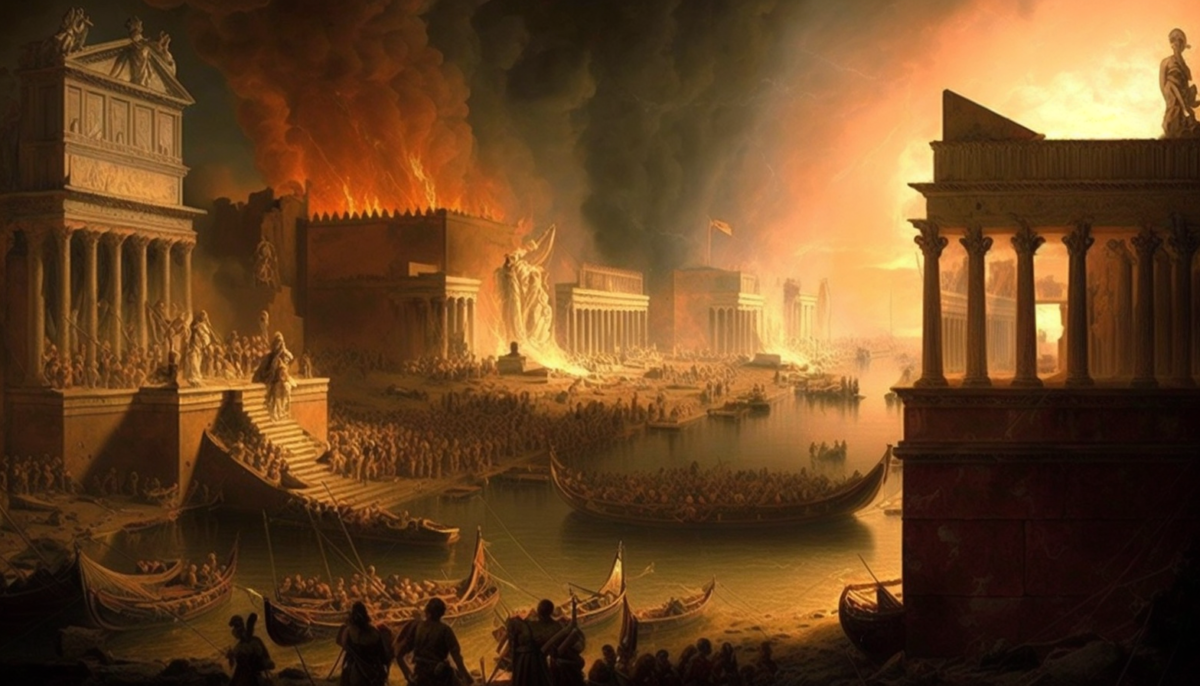
A prolonged Macedonian Empire under Alexander the Great might have stymied the ascent of the Roman Empire. Even without direct Roman conquest, a united Hellenistic world post-Alexander could have posed a formidable challenge to Roman expansion.
As Rome ventured into the Hellenistic sphere during the late Republic and early Empire, it reaped substantial wealth and opulence.
Yet, envision a scenario where the region stood more consolidated under a single ruler. This could have presented a more robust resistance to encroaching Romans, considerably complicating their territorial conquest.
The cultural landscape of Rome would have diverged significantly, devoid of the pronounced Greek influence borne from conquest.
Moreover, minus the riches and resources from the East, Rome might have found it arduous to subdue lands in the Western and North African expanses—territories pivotal to the empire’s aggrandizement and dominion.
Rome’s expansion might have been curtailed if the Macedonian Empire maintained its vigor and unity under Alexander’s successors. The world would have borne a markedly altered visage.
The evolution of Western civilization could have charted an entirely different course, reshaping antiquity’s cultural, political, and economic dynamics.
An enduring Macedonian Empire could have unfurled far-reaching ramifications, molding the tapestry of world history and the trajectory of human civilization in manners beyond our conjecture.
Like this article? Check out more alternate history:
- Could Alexander the Great have conquered India?
- Could Alexander the Great have conquered Rome?
- What if Constantinople never fell?
- What if Julius Caesar wasn’t assassinated?
